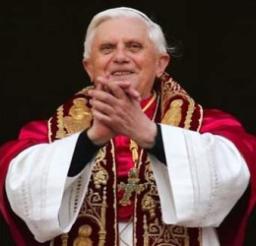Pope Benedict XVI has issued a document updating the legislative framework for the service of charity in the Catholic Church.
In his personally signed 'Motu Proprio' to all Catholics, Pope Benedict outlined his legal expectations of the Catholic community in undertaking charitable activities.
"In carrying out their charitable activity ... the various Catholic organisations should not limit themselves merely to collecting and distributing funds but should show special concern for individuals in need and exercise a valuable educational function within the Christian community, helping people to appreciate the importance of sharing, respect and love in the spirit of the Gospel of Christ," he said introducing his legislative amendments to the Code of Canon Law.
The document outlines a requirement for Bishops to establish local Caritas services (to operate as part of Caritas Internationalis, the Roman Catholic relief services) or a similar body to promote community education "aimed at fostering a spirit of sharing and authentic charity".
A total of 33 decrees are made by the Pope in his Motu Proprio which will become effective as of 10 December. The Pope is in charge of the Code of Canon Law, a fully developed legal system including courts, lawyers and judges. He issues a Motu Proprio when he amends the Code.
Another amendment is that those undertaking charitable activities, of which their right to do so is outlined in the document, are required to follow Catholic principles in doing so. And "they may not accept commitments which could in any way affect the observance of those principles". Additionally any charitable agencies or foundations promoted by Institutes of Consecrated Life, those legally set up by the Roman Catholic Church, must adhere to the Code.
Further amendments include:
- A charitable agency may only use the name Catholic with written consent from the "competent authority"
- This authority must ensure it avoids "the proliferation of charitable initiatives to the detriment of their activity and effectiveness"
- The responsibility for these assurances lies with the diocesan Bishop who must also "take care that the faithful and the institutions under his supervision comply with the legitimate civil legislation" in the area of charitable activities
- Agencies set up by the 'faithful' to carry out charitable services must submit an annual financial report
Catholic law has previously sat at odds with UK law in some areas. In a recent high-profile case the charity Catholic Care (Diocese of Leeds) failed in its attempt to challenge the Charity Commission’s refusal to let it change its governing documents so that it can continue to prevent gay couples from using its adoption service. It has consistently argued that if it cannot exclude gay couples from using its adoption service, its ability to fundraise under the auspices of the Roman Catholic Church will be severely impeded.
The full Motu Proprio can be found here.









